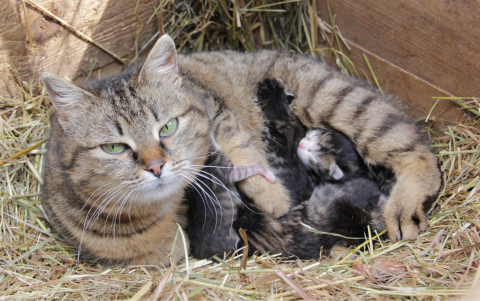
It is “profitable” for parents to produce offspring from a partner more distant in terms of MHC genes, providing maximum heterozygosity for the offspring, which increases its survival rate. It is believed that the choice of a partner with the most different MHC genes allows females to produce the most viable offspring (including those with accelerated development of young animals and a strong immune system). The effect of MHC genes on mate selection has been confirmed in a number of invertebrates and vertebrates, including mammals. However, at the moment there is not enough information about the consequences of such a choice for a number of species (or taxonomic groups), including felids.
Scientists of the A.N. Severtsov Institute of Ecology and Evolution, Russian Academy of Sciences, evaluated the effect of MHC genes distance in a parental pair on the survival of offspring in a domestic cat. An analysis of 38 litters (131 kittens) showed that the survival rate of kittens indeed depended on the similarity/difference of parents in the genes of the MHC complex.
In broods born from parents with the maximum distance in MHC class I and II genes, more cubs survive. At the same time, this effect is most significant in relation to MHC class I. In parents with the maximum distance in MHC class I genes, 91.8% of kittens survive on the first day after birth, while in parents with the minimum distance - 71.4%. By the age of transition to solid food, this effect is less pronounced. The distance for MHC class II genes is significant only at birth, and by the age of transition to solid food, the effect completely disappears. That is, from parents with a minimum distance for the MHC genes, a significant number of cubs are either born dead or die on the first day after birth.
This work was supported by the Russian Science Foundation grant 18-14-00200.
Erofeeva, M.N., Alekseeva, G.S., Kim, M.D., Sorokin, P.A., Naidenko, S.V. (2022). Inbreeding Coefficient and Distance in MHC Genes of Parents as Predictors of Reproductive Success in Domestic Cat. Animals, 12(2), 165. https://doi.org/10.3390/ani12020165
